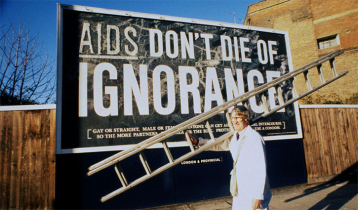Humans could be wiped out climate change
4 || risingbd.com

Risingbd Desk: Humanity could be destroyed by 'catastrophic' climate change within the next century.
That's the shocking claim from US researchers who say there is a 1 in 20 change we'll be wiped out in the next 100 years as a result of 'low-probability high-impact' events.
They say an increase greater than 3°C could lead to 'catastrophic' effects.
However an increase of more than 5°C will 'unknown' consequences which could lead to the end of life as we know it.
Veerabhadran Ramanathan, a professor of climate and atmospheric sciences at the University of California said: 'When we say five per cent-probability high-impact events, people may dismiss it as small but it is equivalent to a one-in-20 chance the plane you are about to board will crash.'
Researchers at the Scripps Institution of Oceanography at the University of California San Diego have used this analogy to try and illustrate the situation currently facing the planet.
They performed calculations to work out what would happen if temperatures rose by varying degrees between now and 2100.
'We would never get on that plane with a one-in-20 chance of it coming down but we are willing to send our children and grandchildren on that plane,' said Ramanathan.
Their risk assessment stems from the objective stated in the 2015 Paris Agreement regarding climate change.
It was agreed that society keep average global temperatures 'well below' a 2°C (3.6°F) increase from what they were before the Industrial Revolution.
Even if that objective is met, a global temperature increase of 1.5°C (2.7°F) is still categorised as 'dangerous,' meaning it could create substantial damage to human and natural systems.
A temperature increase greater than 3°C (5.4°F) could lead to what the researchers term 'catastrophic' effects.
An increase greater than 5°C (9°F) could lead to 'unknown' consequences which they describe as beyond catastrophic including potentially existential threats.
The spectre of existential threats is raised to reflect the grave risks to human health and species extinction from warming beyond 5° C, which has not been experienced for at least the past 20 million years.
Dr Ramanathan and his colleague and former Scripps graduate student Yangyang Xu, now an assistant professor at Texas A&M University, describe three strategies for preventing the gravest threats from taking place.
Aggressive measures to curtail the use of fossil fuels and emissions of so-called short-lived climate pollutants such as soot, methane and HFCs would need to be accompanied by active efforts to extract CO2 from the air and sequester it before it can be emitted.
It would take all three efforts to meet the Paris Agreement goal to which countries agreed at a landmark United Nations climate conference in Nov 2015.
Short-lived climate pollutants are so called because even though they warm the planet more efficiently than carbon dioxide, they only remain in the atmosphere for a period of weeks to roughly a decade whereas carbon dioxide molecules remain in the atmosphere for a century or more.
The authors also note that most of the technologies needed to drastically curb emissions of short-lived climate pollutants already exist and are in use in much of the developed world.
They range from cleaner diesel engines to methane-capture infrastructure.
Source: The Mail
risingbd/Sept 16, 2017/Mukul
risingbd.com























